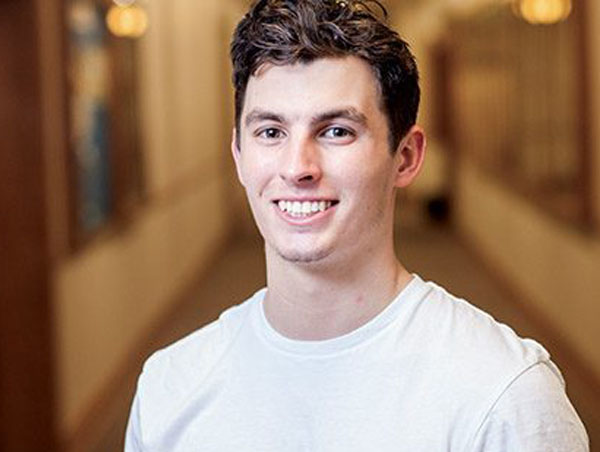Professors Adapt to a Trump Presidency in the Classroom

By Jared Brown (’18)
[Editor’s Note: Following the inauguration of President Donald Trump, our student newspaper, The Gonzaga Bulletin, published a two-part series on how faculty members tackled the tough topics arising from actions taken by the president in his first few months in the White House. Here is an excerpt from those articles.]
Discussing current events is nothing new for most students, but as the Trump administration continues to change the status quo, many professors are adapting their curriculum to provide greater connection to the topics President Trump is addressing, areas such as civil rights, journalism, environmental science, immigration, business and health care. Following are a few examples:
Political Science
Following current events is vital for political science students, according to Cynthia Stavrianos, who teaches introductory American politics. If she thinks one ideology is underrepresented, she will voice that opinion even if she doesn’t agree with it.
Joe Gardner, American politics, echoed the importance of playing devil’s advocate to represent both sides of an issue in class. He also said political scientists are trying to figure out how to teach about Trump, because many of the old models and theories are written with assumptions about how leaders would behave which no longer fit.
Journalism
The jobs of professional journalists have become more tumultuous with the rise of fake news and the doubt cast on media by President Trump. Integrated Media professors Tracy Simmons and Mike Fitzsimmons have since been addressing recent events to show where journalists have gone wrong and where the future leads.
“Journalists make mistakes sometimes. That doesn’t make it ‘fake news,’ it means it’s a mistake,” Simmons said. “I think the media has fallen short, and I understand why a lot of people are upset and don’t have trust in the media. Journalists have a lot to do to make up for that.”
Fitzsimmons said the mistake was journalists “lost their objectivity” during the campaign.
“They were advocates, and that’s not what journalists are supposed to be,” he said.
Religious Studies
One of the talking points of the presidential campaign was the rhetoric directed toward the Muslim community.
“You can’t teach subjects that have anything to do with Islam today in the United States and not have to address, in some form or another, hostile rhetoric,” said Brian Siebeking, who teaches courses on Islamic civilization. “Without necessarily bringing it up specifically, my goal is to give students the tools to diagnose Islamophobic rhetoric or hostile rhetoric on their own.”
Philosophy
In Maria Howard’s 101 Reasoning and 201 Human Nature classes during the fall 2016 semester, students examined Hillary Clinton and Donald Trump’s presidential campaign announcements for examples of informal fallacies.
“Political topics remain important to the class, regardless of who is president,” she said.
It can be hard to discuss some topics objectively, but Howard said, “I don’t ever want to give one of my students the idea that their success in my classroom is contingent upon them adapting or mimicking my beliefs. That’s unhealthy and unhelpful.”
See Brown's full essays in The Gonzaga Bulletin.
